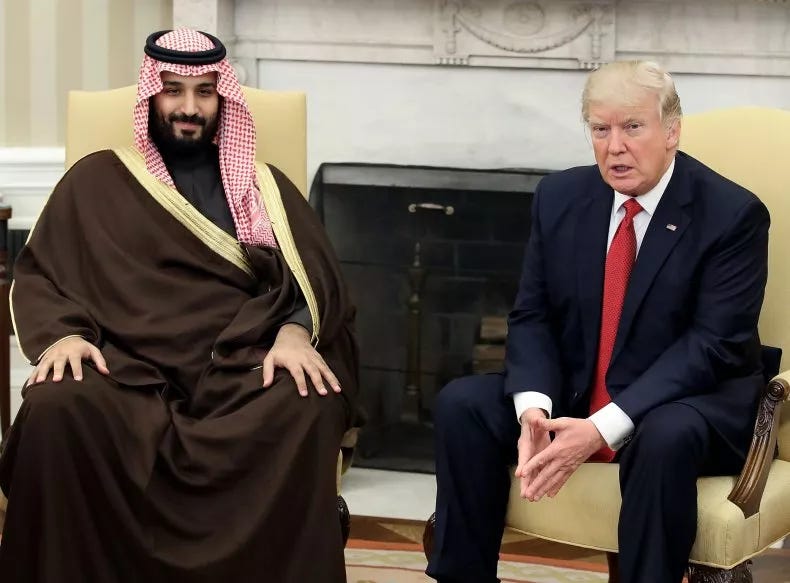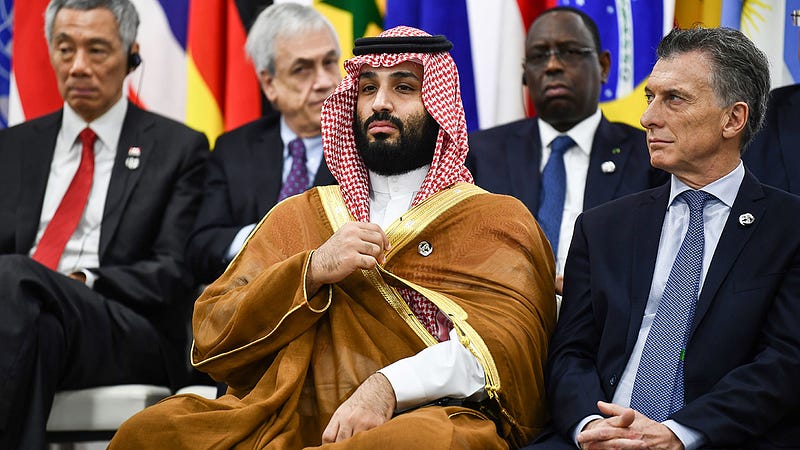
In the heart of the Arabian Peninsula, a young crown prince has embarked on one of the most audacious socio-political experiments of the 21st century. Mohammed bin Salman (MbS), Saudi Arabia’s de facto ruler, is not merely transforming his country — he is attempting to rewrite the rulebook of modern governance: modernization without democratization, liberalization without pluralism, and ambition without apology.
At 39, MbS is a singular figure in global leadership — at once a millennial autocrat and a techno-futurist, a prince with absolute power and a CEO of a state in flux. His leadership poses fundamental questions about the future of the Middle East, the limits of Western political norms, and the evolving psychology of power in the 21st century.
The Architect of Vision 2030
Educated at King Saud University with a degree in law, MbS did not attend elite Western institutions like many of his Gulf counterparts. But what he lacks in Ivy League polish, he makes up for with an acute sense of national urgency and strategic disruption. His Vision 2030 reform plan — launched in 2016 — is both a technocratic roadmap and a philosophical declaration: Saudi Arabia must be reborn.
This transformation is not cosmetic. MbS has begun dismantling the kingdom’s long-standing pact with religious fundamentalism, reducing the power of the clerical establishment, expanding women’s rights, introducing cinemas and concerts, and even allowing tourism — unthinkable a decade ago. The changes are seismic for a country once synonymous with Wahhabi orthodoxy.
But this modernization has limits. Political liberalization is off the table. Dissent is crushed swiftly. Freedom is redefined — not as an inherent right but as a byproduct of state-sanctioned prosperity. MbS’s modernization is carefully curated, top-down, and conditional.

The Psychology of Power
To understand MbS is to understand a new archetype of power. Unlike traditional monarchs or Western democrats, he embodies what we might call “technocratic absolutism” — a hybrid political model that draws from East Asian developmental states, Silicon Valley futurism, and Machiavellian realism.
His leadership is marked by five psychological pillars:
- Strategic Risk Appetite: From the Yemen intervention to the Aramco IPO, MbS repeatedly embraces high-risk, high-reward decisions.
- Binary Visioning: His worldview is polarized — old vs. new, corruption vs. reform, extremism vs. moderation.
- Narcissistic Legacy Building: Megaprojects like NEOM and The Line reflect a desire for symbolic immortality — to be remembered as the founder of a new Saudi era.
- Authoritarian Realism: Power is not shared but concentrated. His 2017 Ritz-Carlton purge, which detained top princes and businessmen, signaled a radical break with consensual royal politics.
- Technocratic Faith: He believes in data, consultants, AI, and engineering solutions — not ideological debates.
This psychological profile is closer to a tech entrepreneur than a traditional monarch. He thinks in frameworks, milestones, and deliverables. His policies are infused with the language of efficiency and disruption.
A Post-Wahhabi Nationalism
Perhaps the most profound ideological shift under MbS is the redefinition of Saudi identity. For decades, Saudi legitimacy rested on two pillars: the House of Saud and the Wahhabi clergy. Today, that equation is being rewritten. MbS promotes a new Saudi nationalism — rooted in heritage, youth empowerment, and economic diversification.
He has severed ties with Islamist movements like the Muslim Brotherhood and positioned himself as a bulwark against Iranian expansionism. In regional terms, he is less an Islamic reformer than a geopolitical realist — aligning with Israel on Iran, forging ties with China and Russia, and managing a transactional relationship with the West.
The Global Implications
MbS is not merely transforming Saudi Arabia; he is proposing a new model for authoritarian modernization — one that rejects the post-Cold War assumption that economic openness inevitably leads to democracy.
Like Xi Jinping’s China and Mohammed bin Zayed’s UAE, Saudi Arabia under MbS suggests that technocracy, nationalism, and autocratic stability can coexist with innovation, investment, and growth. For other states facing democratic backsliding or stagnant reforms, MbS offers a seductive alternative.
But this model comes with costs. The murder of Jamal Khashoggi, the continued detention of activists, and the opaque decision-making structure cast a long shadow over the kingdom’s glittering transformation.
The Future of the Kingdom
As Saudi Arabia barrels toward 2030, three scenarios loom:
- Vision Fulfilled: NEOM is built, the economy diversifies, and Saudi Arabia emerges as a regional tech and investment hub.
- Vision Stalled: Internal resistance, economic volatility, or geopolitical miscalculations derail progress.
- Vision Weaponized: The tools of modernization are used to entrench a surveillance state, masking repression in the language of innovation.
The outcome will depend not just on oil prices or global markets — but on MbS himself. His psychology, decision-making, and worldview are now inseparable from the fate of a nation.
Conclusion: The Prince and the Paradox
Mohammed bin Salman is a paradox of our times: an autocrat with reformist instincts, a nationalist who courts globalization, a millennial with absolute power. He is building a future few thought possible — and yet, his method raises enduring questions about freedom, legitimacy, and leadership in a post-liberal world.
The world would do well to watch not only what he builds — but what he breaks, reshapes, and redefines in the process.
No comments:
Post a Comment